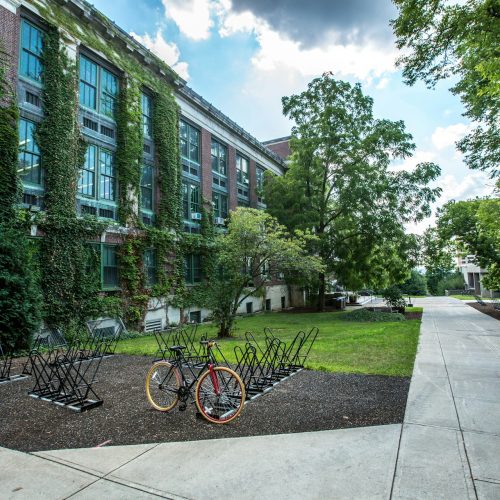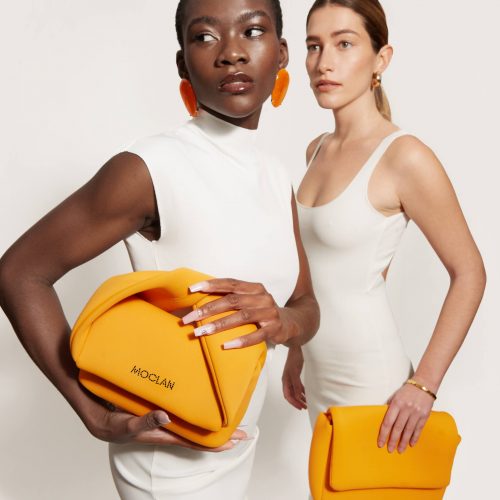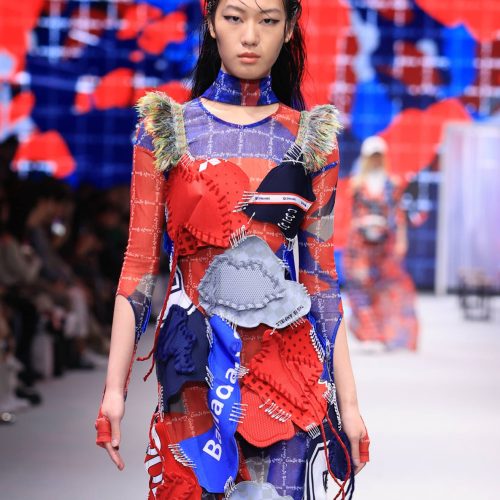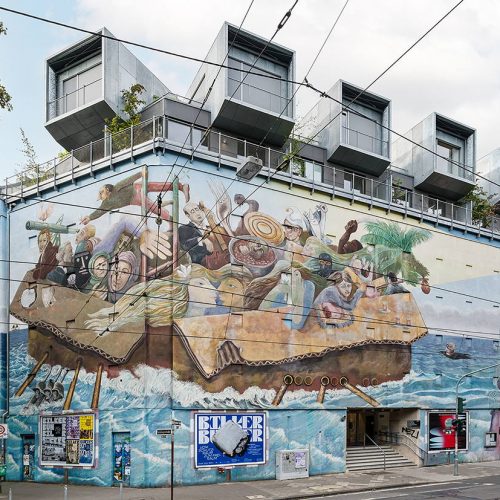Beyond Fashion Berlin | How Was The Second Edition?
After a long wait, Beyond Fashion was finally held in Berlin on July 11-13. The exhibition showcased upcoming sustainable fashion collections and sustainable innovations. We were very happy to be a part of the fair and have some meaningful conversations with the brands showcasing their amazing products. Keep reading to discover our reflections and insights from this event.
To receive the Luxiders Newsletter, sign up here.
“I am very happy to be here! It is the best place to meet new buyers, connect with other sustainable brands, and build stronger relationships with our current clients.” – Anna Schieber, managing director of UVR Berlin.
Beyond Fashion Berlin focused on the future of fashion and sustainability as a part of Berlin Fashion Week. The event served as a conduit, fostering connections between fashion lovers, consumers, and dozens of eco-conscious brands, facilitating meaningful dialogues and interactions. Moreover, Beyond Fashion Berlin provided a platform for critical discussions regarding the contemporary fashion industry, including topics such as greenwashing, the direction of fast fashion, and the principles of circular fashion. Even surprisingly, all the foods provided here were free for every visitor and exhibitor, and they were all vegan!
When we arrived at Beyond Fashion in the early morning, all the exhibitors had already arrived, setting up and arranging their collections at their booths. They loved to have some talks with us, and showed how excited and happy they were about meeting buyers and consumers from all around the world, and meeting other exhibitors for inspiration. We also loved exploring the fair, interacting with all the visitors and exhibitors, and most importantly, enjoying the new upcoming collections and innovations of each sustainable brand, such as the recycled silver collections by Tinchens, collections made of hemp by Hempage, and labels with QR codes on each product to find traceability and certificates by DawnDenim.
In this second edition, the event has not yet managed to attract the relentless traffic of buyers expected at a trade fair of this nature, however, most of the exhibitors consulted were happy to have participated. Dawn Denim, for example, commented: "We don't want to be at events with thousands of visitors just walking around, nor do we want to be at events with lots of visitors but few quality visitors. Here we have signed orders (...) At this event, quality is more important than quantity."
"We received 50% more trade visitors and 30% more exhibitors than at the first edition of Beyond Fashion Berlin," – say the organizers.
Beyond Fashion Berlin offered something exciting, new and surprising. However, all the brands on show had one thing in common: sustainability and the desire to make our world a little bit better. This was also demonstrated by the 5P certificate - specially developed by Beyond Fashion Berlin - which clearly and transparently communicated the sustainable criteria, goals, production and benefits of the exhibiting labels directly at the stand.
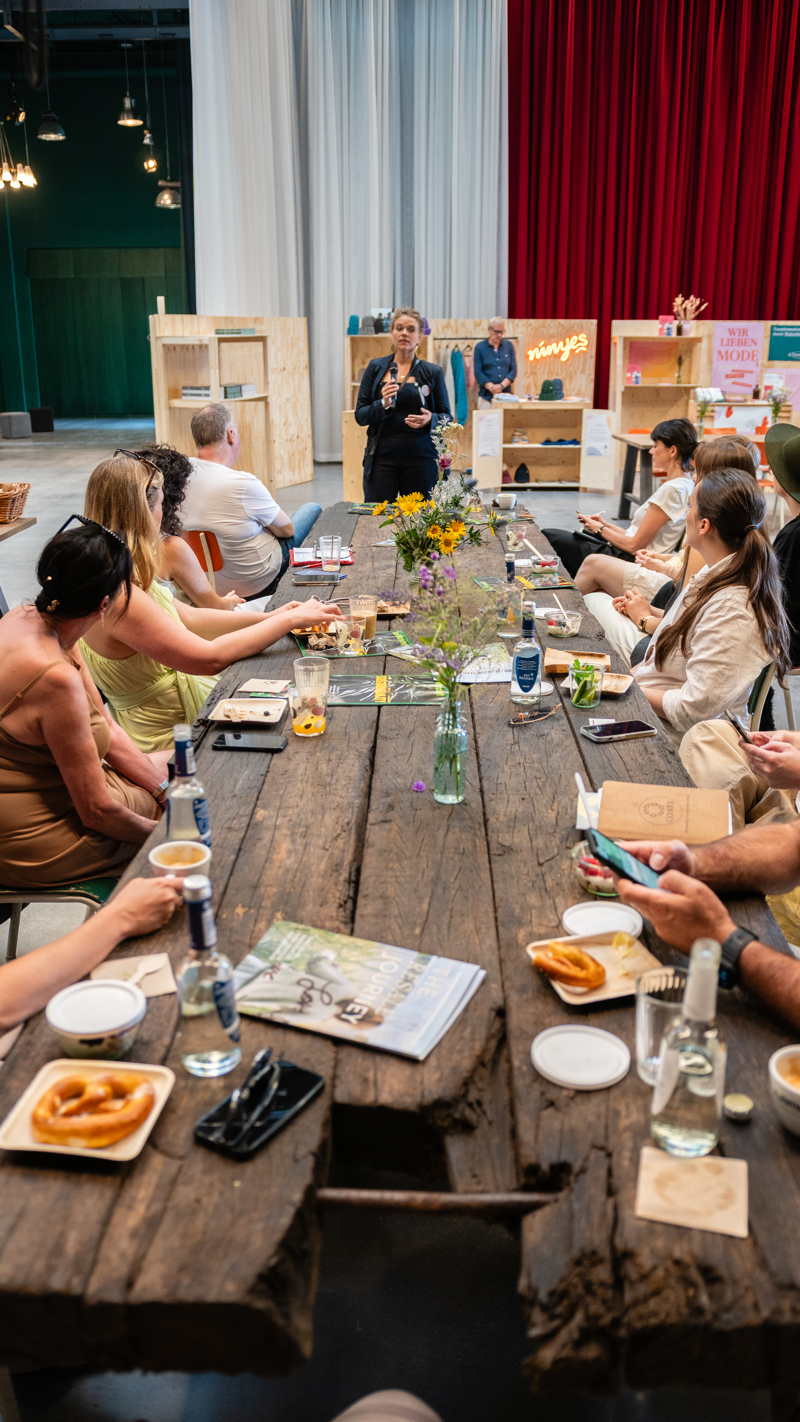
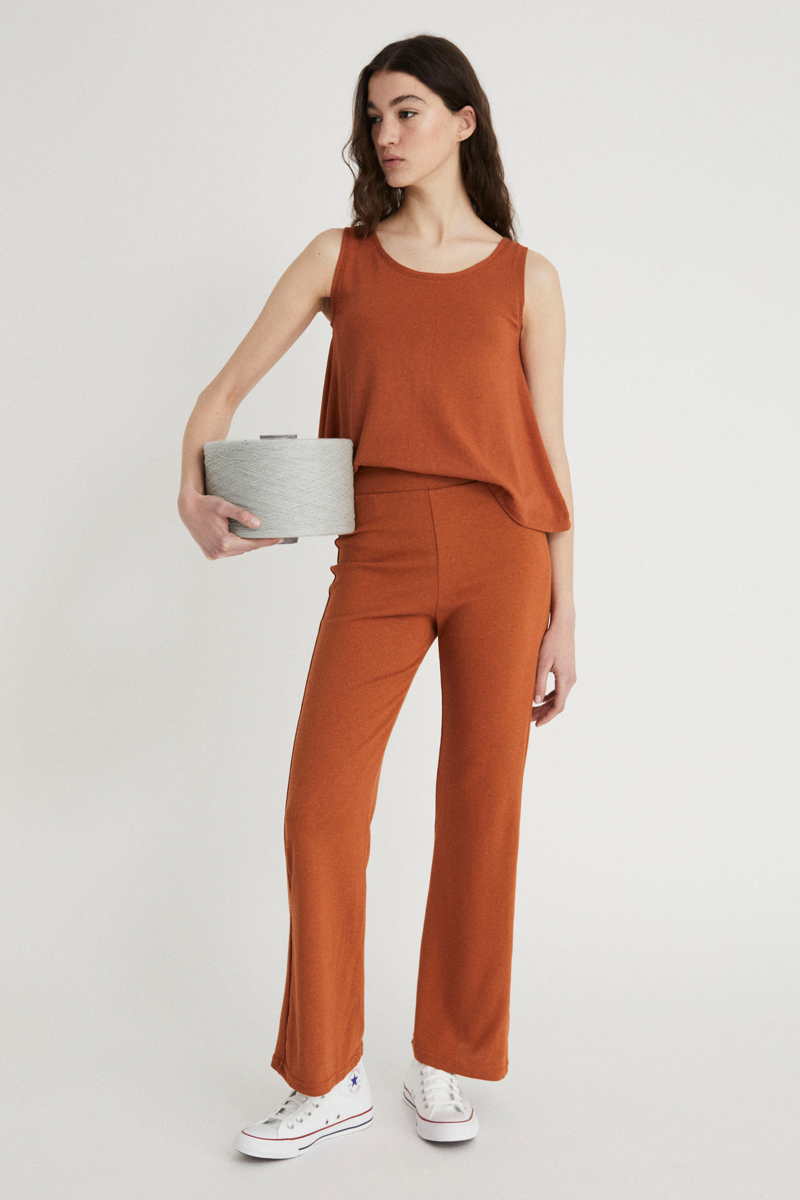
© Infiniti Denim
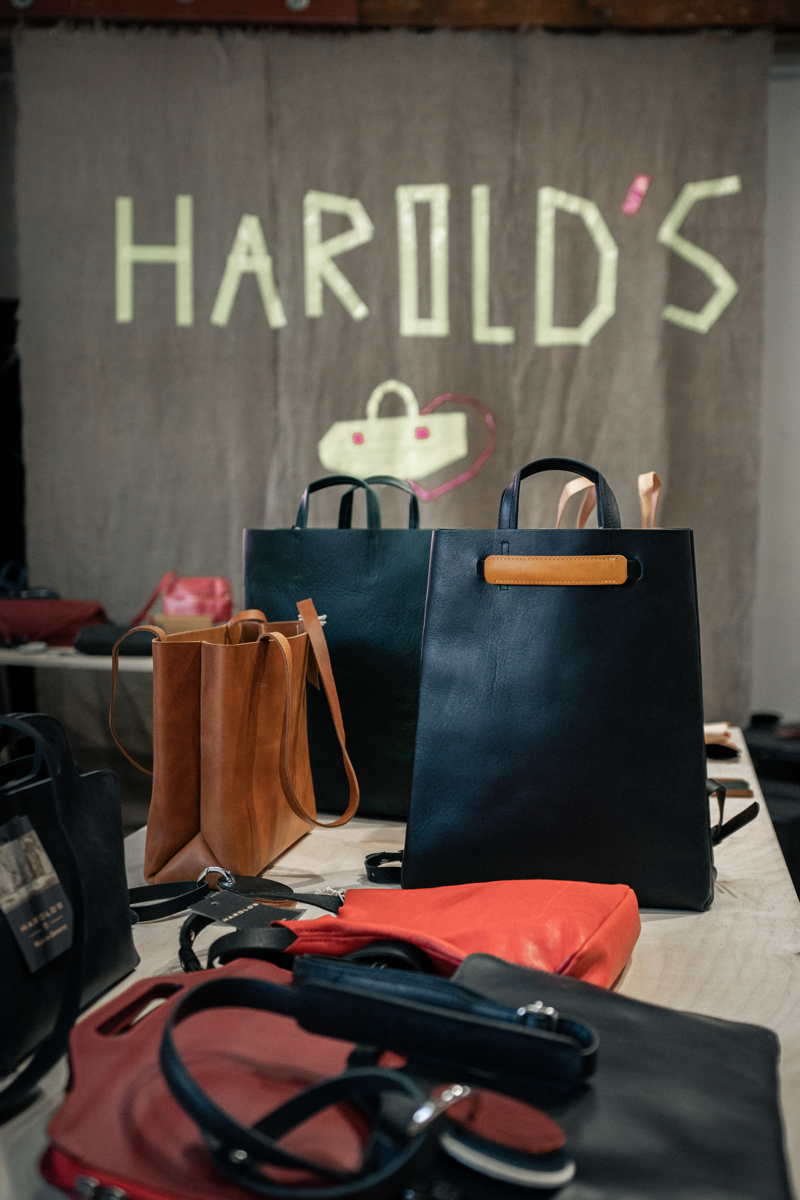
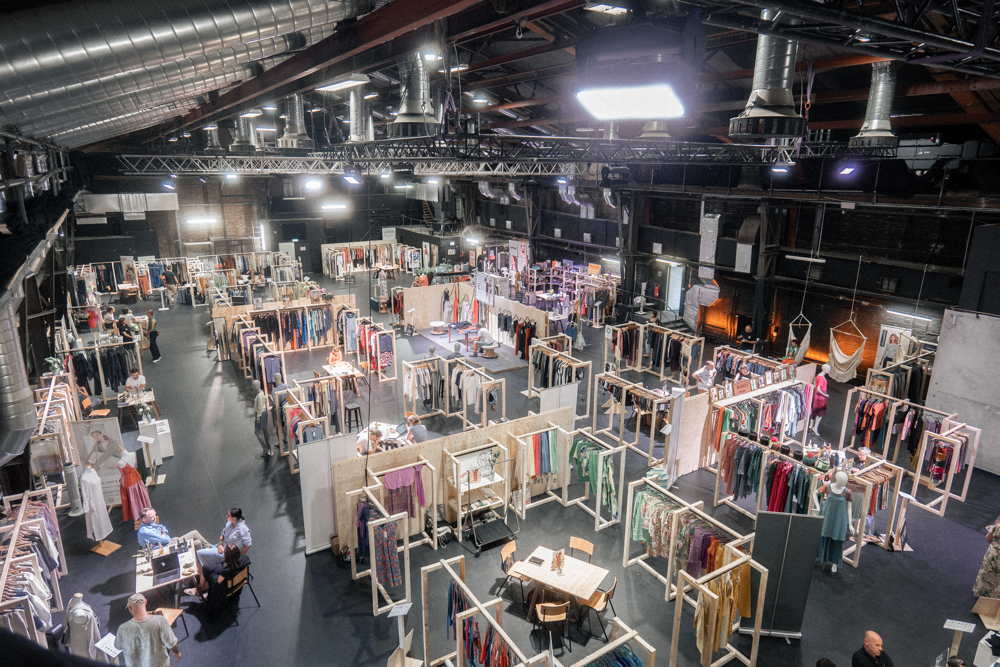
© Infiniti Denim
“We are here to share our sustainable stories from fabrics to all manufacturing process with everybody in this fair”- Anna-Lisa Helena Harfst, Head Designer of Helena Harfst.
BRANDS AND PRODUCTS AT BEYOND FASHION BERLIN
LANA was the first brand we met, and was one of our favorites of the fair. With simple but elegant designs silhouette with 36 years of experience, most of their garments in their collection are GOTS certified and PETA- Approved Vegan labeled, which means that their products are 100% organic and sustainable, and not processed by any form with ingredients of animal origin. Their garments are produced in Europe, with the use of organic fibers such as organic cotton, hemp, linen, wool, and TENCEL, which is obtained from wood in sustainably managed forests, with 99% recovery rate when recycled.
In fashion, we also recommend visiting Helena Harfst and Alchemist, for the elegant aesthetics and the story they tell. Helena Harfst creates carefree clothing made from natural materials with designs that are beautiful, timeless and indestructible. Each piece is produced in their own workshop in Hesse. They want to strengthen the crafts in the region and tell their story of local folklore. We love the brand.
Alchemist is born from the desire to combine sustainability with luxury fashion. Founder Caroline Mewe believes fashion and ethical business practices are equally important. That’s why they create beautiful clothing that is ethically produced made from sustainable materials. The focus of the collections isn’t on following trends, but on high-quality designs that fit well. Every collection, they re-introduce essential pieces in new colors and fabrics. These essentials have been fitted and tested so they can lay the groundwork for a superb wardrobe.
Walter Eichler, distributor for Johnny Love and Klitmøller Collective, points out: "The customers had a very good quality. The second day of the fair was brutally busy for us. I have rarely experienced such a busy day at the fair."
Infinit Denim from Spain was also a very nice discovery. The company produces completely circularly. They developed a method with a fabric engineer to grind up used denim, weave a new fabric from it and revive the "dead" material as a new material with minimal environmental impact and maximum environmental health. Young innovative labels such as GIVN Berlin and Dawn Denim catched again our eyes. They showed how beautiful sustainability is.
Footwears from Zouri also grabbed our attention during the fair. The shoes are designed and produced in Portugal, and designers at Zouri collect plastic waste in the Portuguese coasts, mix them with natural rubber, and make outsoles with it. With this process, Zouri has removed over a ton of plastic trash from Portugal. All of their products are handmade in Portugal, and their fabrics are made of organic cotton, linen, and even corn and pineapple leaves.
During the fair, we found some leather in the booth and we were curious about how they are made. All of the leather bags from Harolds are made of 100% leather following a nearly 80-year tradition of producing top-quality, durable bags. Their goal is to produce bags that can be worn easily over decades. They even offer repair services for customers who broke their bags, in order to keep the consumers away from buying too many bags which can create unnecessary wastes.
“I loved my time here. The spirit of Beyond Fashion gave us positive and great energy. It was fascinating, and it had a very family oriented atmosphere. I would love to participate again.” - Thilo Schmelz, owner of Harolds.
Sustainability is not only about protecting the environment, but is also about protecting people. UMIWI, a sustainable jewelry brand based in Berlin supports human rights and operates several charity programs for people under hard circumstances all over the world. They promote young people, women and men who are having hard time to afford their independent living, cooperate with social organizations, and work with people from small mountains in Thailand, Mexico and India.
We also liked Jaya, a yoga fashion brand made only with organic materials. "Since 2009 we at JAYA have been creating sustainable and stylish fashion for yoga, pilates, dance, beach and everyday, fairly produced in Nepal and Bali" - said Julia Mehedintu, designer of the brand.
"Only if we tackle things together and pull together will we change the fashion world, consumer behaviour, but above all the attitude towards production and a sustainable circular economy," says Lena Nocke, founder and director at Beyond Fashion Berlin.
The fair for fair and ecological fashion is indeed growing slowly but surely (this year it had two halls instead of one and more than 50 exhibitors instead of 32 last year). This makes it the only 100% sustainable trade fair in Berlin.
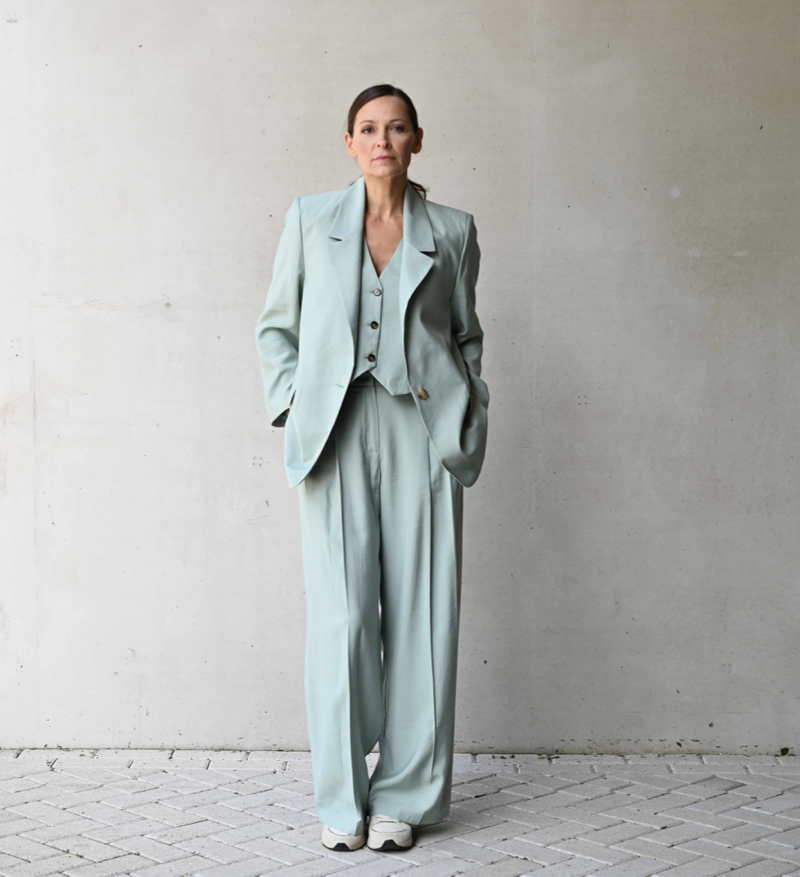
Alchemist New Collection
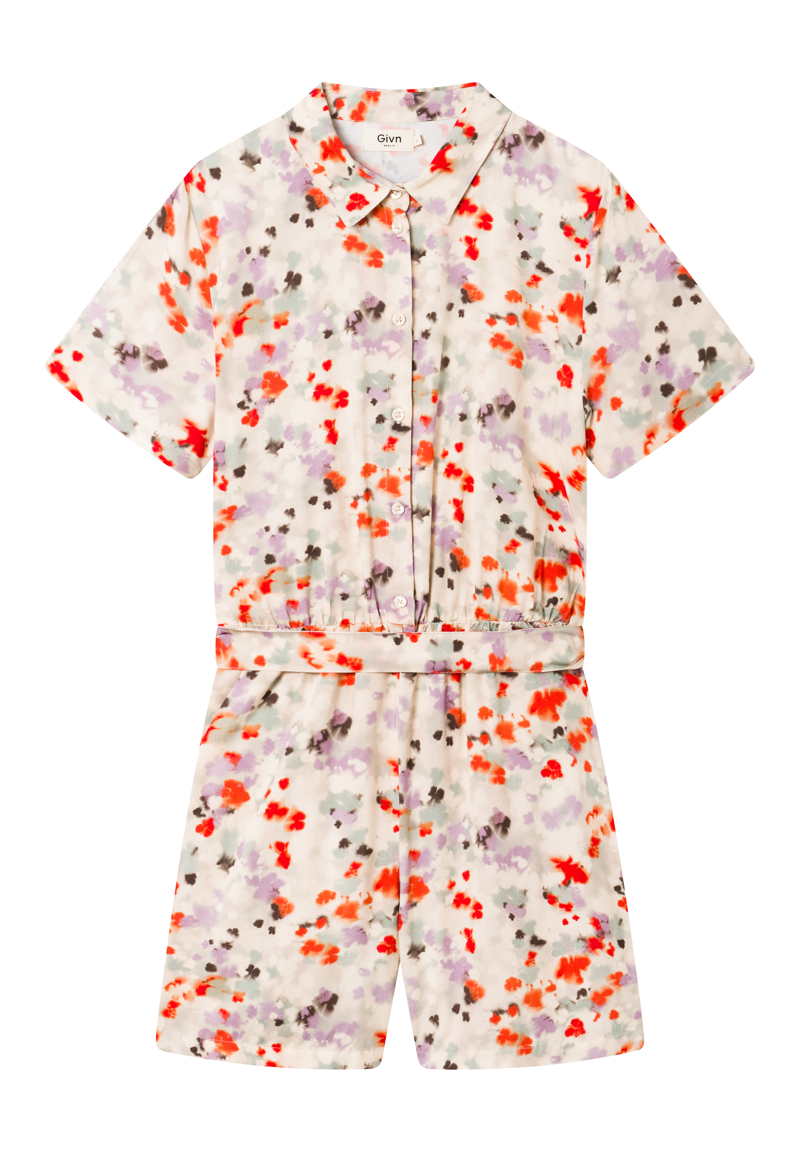
Givn Berlin New Collection
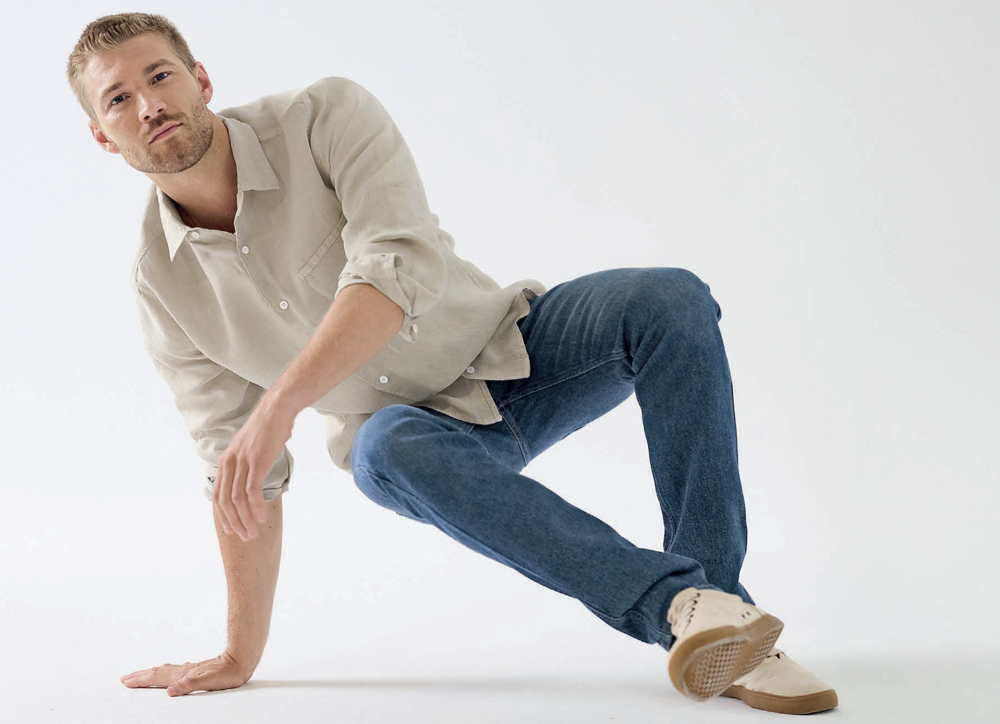
Hempage New Collection
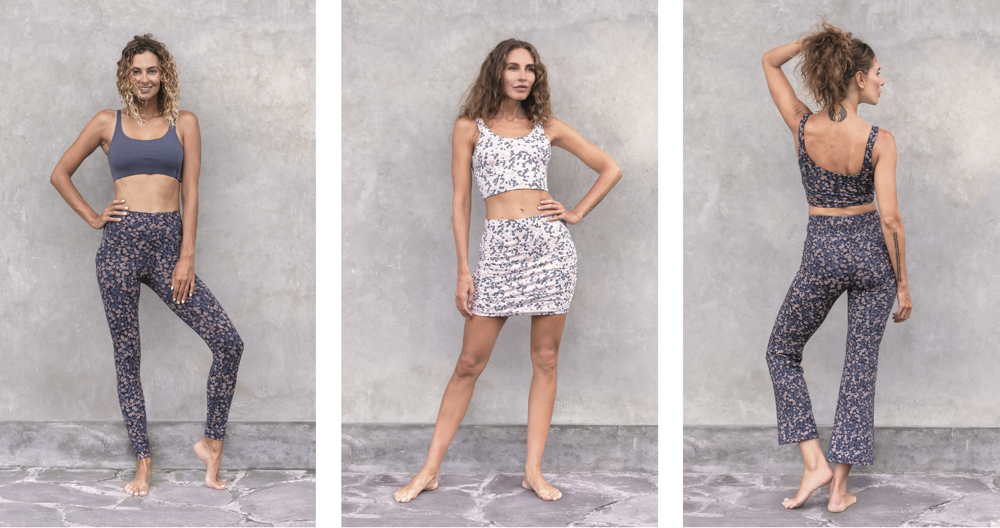
Jaya New Collection
Highlight Image:
© Wild Fawn New Lookbook
Words:
Yoochan Si & Belvis Soler
Luxiders Magazine

